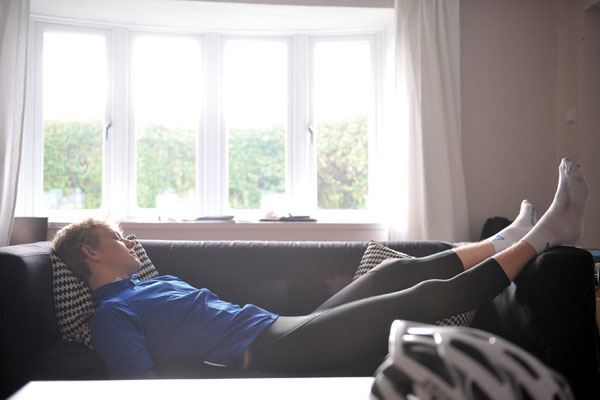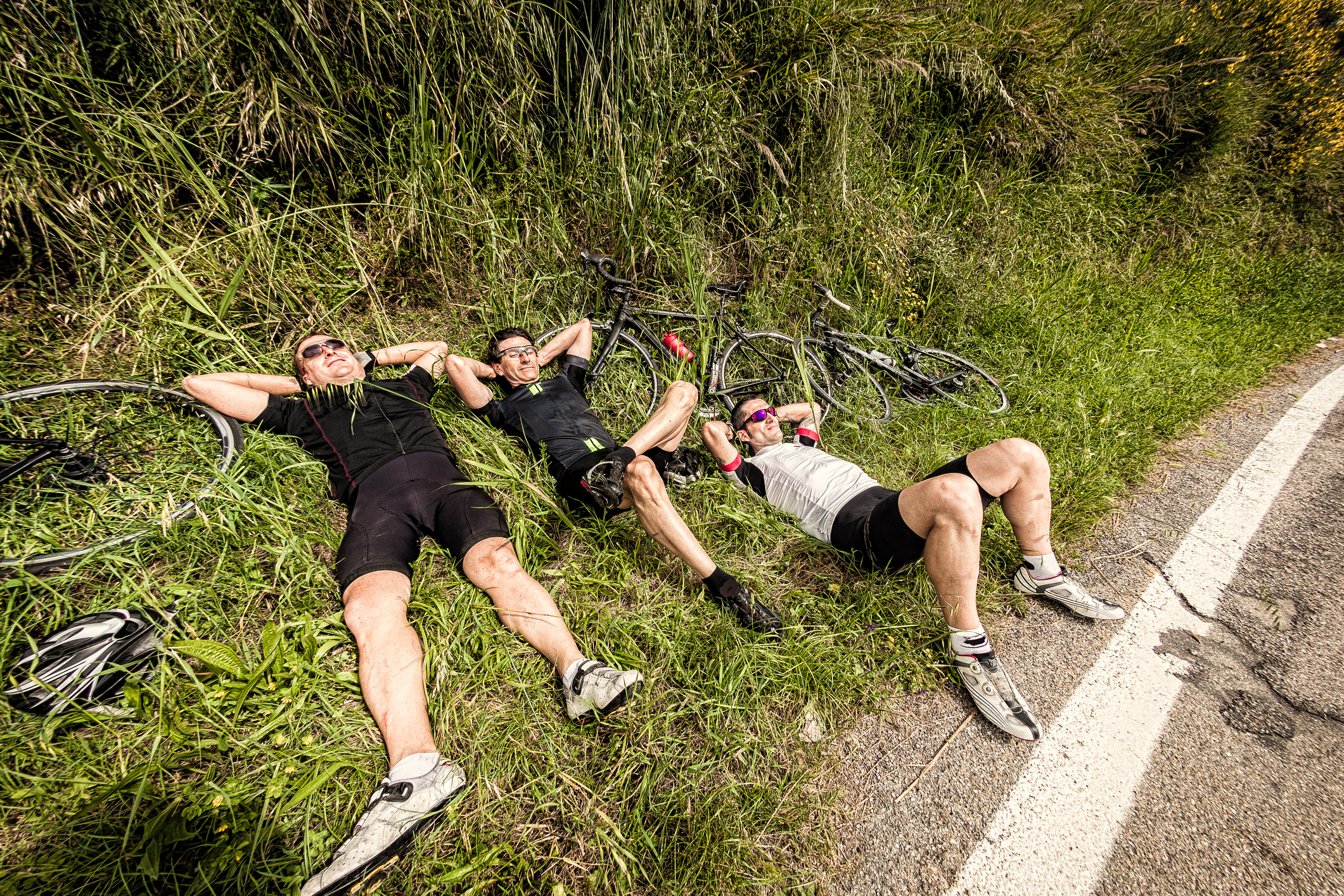How many rest days should a cyclist take each week?
We all know we can't ride hard every day – but how much rest should we be taking?


Michelle Arthurs-Brennan
As bike riders, many of us feel most at home when breathing hard on an upward slope with beautiful vistas all around, so it's sometimes difficult to process the idea that fitness is accrued through rest. That's right – sitting on the sofa reading this article on your phone or your laptop could well be gaining you more fitness than heading out for yet another ride.
But how many rest days should we be taking, assuming fitness gains are what we're after – and what should they look like?
The answers to those questions are mostly down to the individual, and there can be a lot of variation. That said, there are a few useful rules of thumb we can look to.
Why rest anyway?
If training is the process of breaking your body down, rest is the process of rebuilding it, enabling you over time to become a stronger and more accomplished bike rider.
However, the new, stronger you can only emerge with sufficient rest and recovery, as your body repairs fatigued muscles and replenishes the glycogen stores that will enable you to ride hard again another day.
Matt Bottrill is a former National 25-mile champion, and these days he runs a successful racing team and is the owner of Matt Bottrill Performance Coaching. He tells Cycling Weekly: "Your body can only absorb so much load."
How often should we rest?
For most riders, especially at this time of year, when training involves more of a slow build towards the summer months, Bottrill recommends two days off the bike each week.
The latest race content, interviews, features, reviews and expert buying guides, direct to your inbox!
"If we're looking at the winter phase a couple of rest days would be sufficient for most people," he says, but adds that racers might be OK to do more: "If you're more geared towards performance, you might just want to go for one day."
There are no hard and fast rules around how many days off you should take, he points out, as individual needs vary so much.
"That's when coaching, or understanding how your own body works, kicks in. Because how one athlete adapts to training is so different to the next," he says. The key thing is being able to recover sufficiently to be able to make your 'quality' days count – those when you are performing intervals or riding hills, for example.
Even if you feel like you could ride every day, the smart advice is not to, says Bottrill.
"It's not worth it," he cautions. "What happens is the quality of those sessions, it just starts to dwindle. For the majority of people, you just end up with a flat line in training, ultimately, because your body can only absorb so much. It's definitely not a smart decision."
But taking a day off the bike does not mean you have to take a day off, says Bottrill. In fact, he says, many would benefit from some mobility work and, if you're a bit older, some strength work too.
"A rest day doesn't necessarily mean you have to take the full day off," he says. "Some of that should build in some mobility work, stretching… I think a lot of people would benefit from that. It's about functional movement. That will only enhance performance really.
"Especially for a lot of older athletes, once you're into your forties, you're better off replacing sessions with some form of strength training than having a day off," he adds. "You're getting the most bang for your buck that way."

Don't be afraid to rest when you need to
When to take an unscheduled rest day
The rest days marked up on your calendar aren't the only ones you'll ever need to take. There will be occasions when you're tired or run-down that you're going to be better off taking a duvet day.
"The tell-tale signs are when you wake up and you feel fatigued, a bit sleepy, you need that extra coffee," Bottrill says. Sometimes all it takes is the first hill or effort on the bike to wake you up. But if your heart rate won't rise like it usually does, "then you generally know that you're going to be better off coming home."
And be careful before you rush back into it the following day, he adds, because that initial day of tiredness could be a sign that you need a few days' proper rest.
"If you wake up the next morning and you're still tired, and that's when you probably need to go, 'you know what? I'm gonna back off. Let's take, three days off here,' right?" he says – whereas doing the opposite could see you end up getting ill.
Don't be afraid to take the time off you need, advises Bottrill, and once you're feeling recovered, be prepared to build back slowly.
He suggests a final "check-in" day with no hard riding, just to make sure your heart rate looks back to normal, and then a slow build back up to full speed, for which you should allow twice the time you were ill for.
"If you go out and smash it the first day after you've recovered, it's going to come back and bite you," he says, but adds: "Training is not about one day – it's the consistency that's key."
After cutting his teeth on local and national newspapers, James began at Cycling Weekly as a sub-editor in 2000 when the current office was literally all fields.
Eventually becoming chief sub-editor, in 2016 he switched to the job of full-time writer, and covers news, racing and features.
He has worked at a variety of races, from the Classics to the Giro d'Italia – and this year will be his seventh Tour de France.
A lifelong cyclist and cycling fan, James's racing days (and most of his fitness) are now behind him. But he still rides regularly, both on the road and on the gravelly stuff.
You must confirm your public display name before commenting
Please logout and then login again, you will then be prompted to enter your display name.
